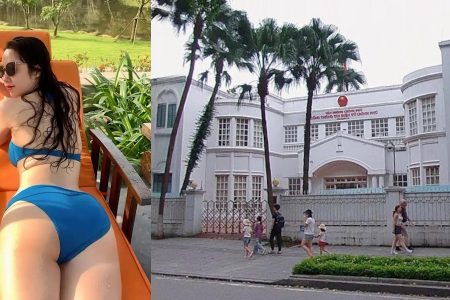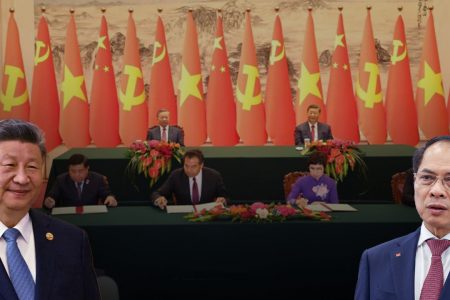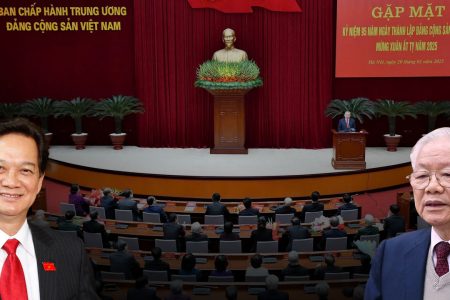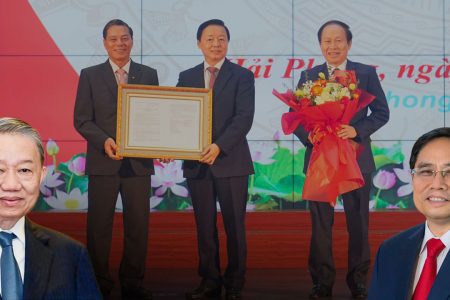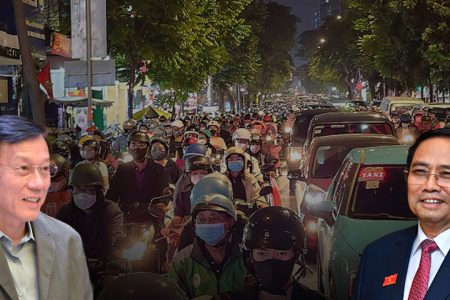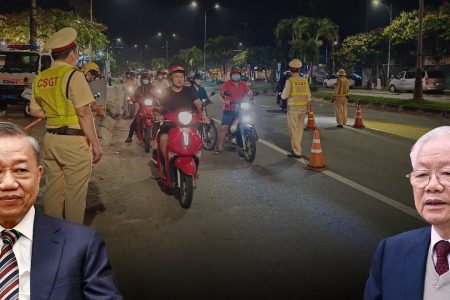
The Vietnamese police are proving eloquently that they are a force that causes public disorder.
Vietnamese police force entered the cinema and checked the age of the audience while they were watching the movie “Mai.”
The incident of the police ‘unexpectedly checking’ the age of the audience during an 18+ movie screening at the Cinestar, District 1, Ho Chi Minh City on February 26 was not surprising, it only caused more insecurity.
The entire audience of this movie screening was stopped midway by authorities who violated their right to “pursue happiness.”
The funny thing is that “the authorities did not detect any violations” after the inspection, according to the Vietnam National Assembly television news website.
Misusing authority
Dan Tri newspaper stated the opinion of lawyer Quach Thanh Luc that according to Article 16 of the 2018 People’s Public Security Law, the Police have the right to “inspect and resolve complaints and denunciations, and handle violations in matters related to security, ensure social order and safety, etc.”
However, this definition is quite vague, it only refers to authority and does not state the method or level of intervention, especially in the case of interrupting the screening.
Unexpected inspections should only be applied when arresting criminals, the level of crime is serious, significantly affects the safety of others or the community, and must be stopped immediately.
Even if there is evidence of an audience under the age of 18 at a screening, the police must respect the rights of other audience to fully enjoy their entertainment.
Furthermore, checking the audience’s age can be done before or after the screening. You cannot trample on the interests of the audience by arguing that the police have power, without considering the rights of the people.

The law is vague and the response is weak
Lawyer Tran Vu Hai asked on his personal page: “I have not seen either the theater or the authorities cited what specific provisions of any legal document does this unexpected inspection comply with?”
As a cultural inspector, Mr. Pham Viet Dao, who is also a critical voice in the country, called this case “criminalization of cultural activities.”
Nguyen Van Quang stated his experience with police forces abroad: “That’s just how low human rights societies are in Vietnam. In Korea, the police will be criticized for such action. And there is no way he would do that.”
Peter Nagy said: “The police are arrogant and actively dig the grave of one-party communists! Look at the example in the Soviet Union, in Romania…”
Apart from the video recorded and posted on social networks, the audience at the screening showed no signs of protesting against the uncultured actions of the police, who were responsible for protecting security but causing chaos.
On the one hand, the public acknowledges the courage of the person who filmed and posted the video about this incident. On the other hand, it is necessary to further encourage people’s resistance to abusive acts of law enforcement officers.
For Vietnamese people to be aware of their rights and speak up against social injustice is a long and dangerous process for them.
This process needs to be continuously and strongly encouraged so that people in the country are aware of the value of freedom and democracy, concepts that many people consider not practical in terms of money.
People can only be truly entertained without stress or fear when they exercise their rights fully, including voting to remove officials who violate the constitution and law.
Without democracy and freedom, people can be deprived of comfort, relaxation or excitement at any time due to the abuse of power by the police, as happened at the recent Cinestar cinema.



